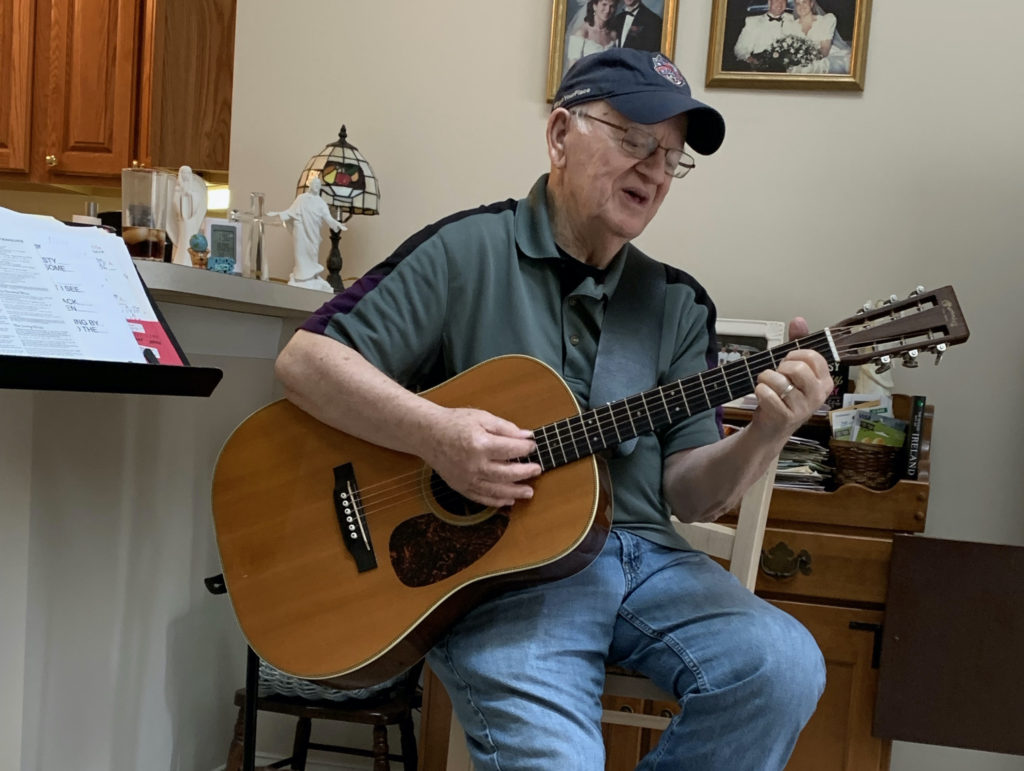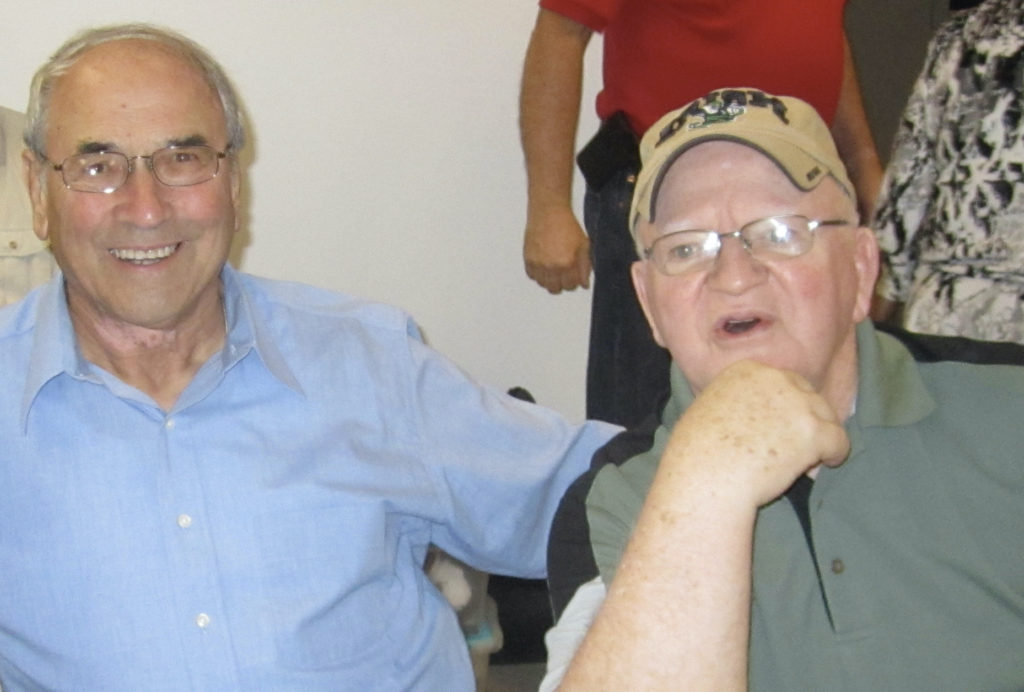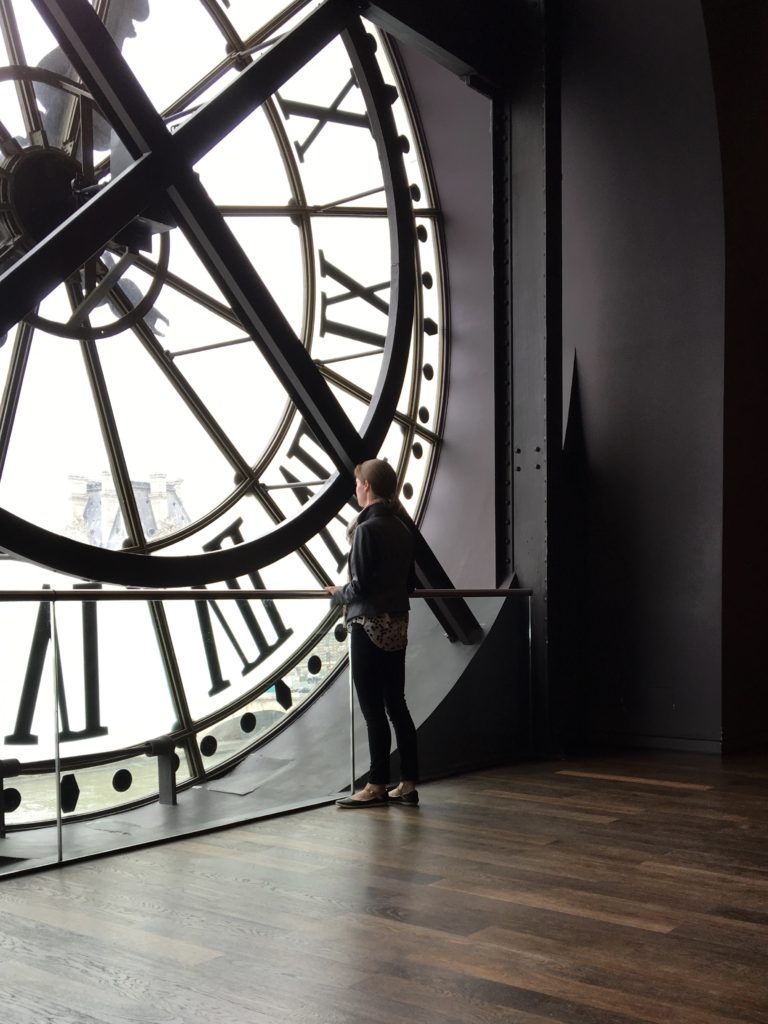Deep friendships add light to one’s soul even in difficult and dark times. Those special people with whom we share our journey offer a safe place to rest, finding a space in their hearts for our struggles and sorrow as well as our dreams and joy. They celebrate with us. (Something I suggest we do as often as possible and for every little thing.) They accompany us as we grieve. As we process what life is handing us. Or ponder big questions along with the mundane: weather, books read, or what to cook for dinner. They share hard-won wisdom. No topic is taboo. These friends may cry with us or tap laughter hiding beneath our tears. They may simply “be with” us when there are no words to say or when neither of us can see a path opening ahead.
Such companions have blessed me. I hope the same for you. The pandemic may have complicated personal connections, but bonds with deep friends are resilient and remain.
Mike was such a friend. He passed away in February of this year. Our final in-person visit was last year in late June. We shared lunch, and appropriately, guitar playing and song.

Music and desire for community brought us together when I was around 17. A small group of people, most in their late 20s and early 30s, were gathering to explore their faith and how to live it out during the years that saw the Vietnam war, the growing civil rights movement, and social upheaval. The friends came together to support one another and celebrate life with singalongs, potlucks, and conversations that lasted late into the night. Invited by a mutual friend, I brought my guitar and joined Mike and others providing music.
We gathered in homes and in a member’s shoe store – after hours. Eventually the folks pooled money and purchased a small property nestled along the fringes of the Hocking Hills. It was named Koinia and became their gathering place and a refuge for those of us seeking solitude and nature’s balm.
My life and Mike’s intertwined beyond the small group. We sang in coffee houses, at weddings, and liturgical celebrations. We saw one another at holiday parties and birthday bashes for mutual friends. Years flipped by like pages of a riveting novel.
Life took us in different directions, and opportunities to connect became fewer though we offered support as we could, especially during difficult times. Hearing Mike’s voice and music and meeting his compassionate gaze was a great comfort when he sang at the funerals of both of my parents. No matter how much time passed between our visits, when we did reconnect, conversation flowed as easily as ever.
Four years ago, Mike inspired me with a story of struggle and forgiveness. I had been working alone in a small cabin near Mike and Patty’s home. Preparing to co-direct a retreat, I needed the quiet, away-from-everything space. A few days before, a longtime mutual friend, Mario, had died. On the funeral day, I drove into town, picked up Mike and his wife, Patty, and took them with me to the funeral. People gathered afterwards to share memories and food. When things quieted down, I returned Mike and Patty back to their home then stopped at a nearby convenience store to buy drinking water for the cabin.

On my way out of town, grief settled in as profound loneliness, and I wasn’t ready to return to the empty cabin. I sat in my car on the edge of a park. And sat. Finally, I called Mike and invited myself to dinner. He and Patty warmly welcomed me and shared more food, laughter, and stories. Their company bolstered my spirits, and as night approached, I headed back to the cabin. Providence had other ideas. A fallen tree blocked the final stretch of road, and unfamiliar with an alternative route through the hills to the cabin, I called Mike again.
Patty had the guest room ready when I arrived, complete with an extra nightgown laying on the bed. We visited until 11 when she said goodnight. Mike and I stayed up for a couple more hours and sang a song or two. Then just talked. As conversations go, ours meandered from Mario to grief at his passing to times at Koinia. Perhaps led by our sorrow, we eventually talked of struggles with past hurtful experiences. Mike shared a particularly difficult episode. Then matter-of-factly said, “I forgave them.”
After a quiet pause he continued. “I had to let it go. If I hadn’t, I wouldn’t be the person I am today.” I watched him. One of the kindest, gentlest, loving souls I have ever known. “I had to move on. And you know, it hasn’t been a once-and-done thing. As time went by, memories came back. Occasionally still do. I felt hurt and betrayed all over again. And angry. Each time, I forgave. It got easier.”
We sat in silence for a while. I watched him and tried to imagine him different. Bitter. Cold. Nursing a wound that wouldn’t heal. I was grateful Mike had chosen forgiveness all these years. That his life, like his songs, was full of kindness and hope.
I shared something with Mike that night. Something I hadn’t forgiven. Not completely. Not every time it resurfaced. Not easily.
What is it about old wounds that make hanging on to them feel deceptively comforting? Is it that dwelling on someone else’s shortcomings shields one from their own? Is it self-doubt? Does pulling someone else down make one feel better about themself? Oddly attractive, hanging on to hurts gives power to those who hurt us. Power that can affect one’s life long after the event. Lack of forgiveness can poison a personality. Mike knew that and refused to let it happen.
I took a deep breath. I forgave. I knew I’d have to make that choice again and again. But I could. I would. Remembering Mike will help.


